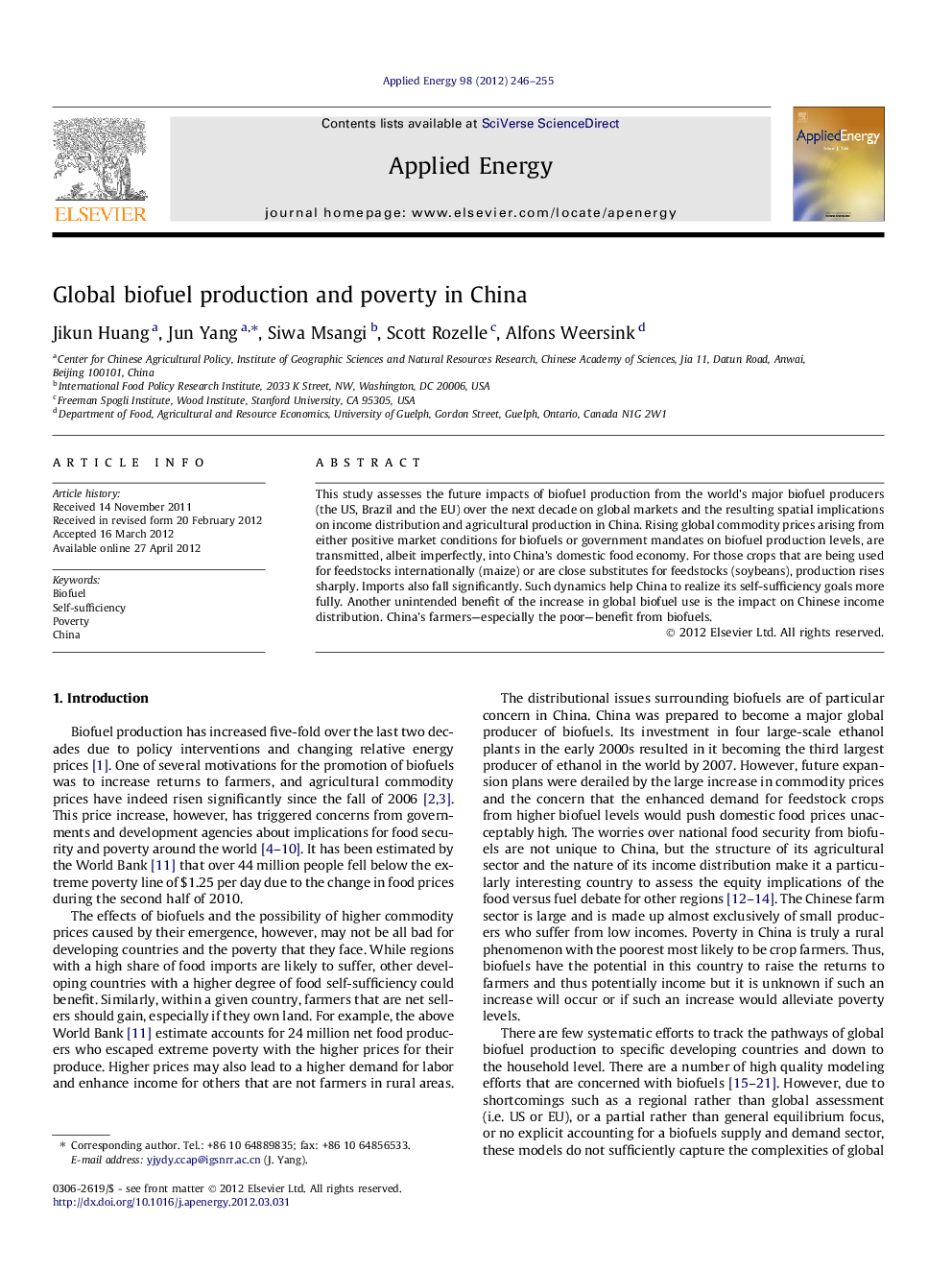| Article ID | Journal | Published Year | Pages | File Type |
|---|---|---|---|---|
| 243209 | Applied Energy | 2012 | 10 Pages |
This study assesses the future impacts of biofuel production from the world’s major biofuel producers (the US, Brazil and the EU) over the next decade on global markets and the resulting spatial implications on income distribution and agricultural production in China. Rising global commodity prices arising from either positive market conditions for biofuels or government mandates on biofuel production levels, are transmitted, albeit imperfectly, into China’s domestic food economy. For those crops that are being used for feedstocks internationally (maize) or are close substitutes for feedstocks (soybeans), production rises sharply. Imports also fall significantly. Such dynamics help China to realize its self-sufficiency goals more fully. Another unintended benefit of the increase in global biofuel use is the impact on Chinese income distribution. China’s farmers—especially the poor—benefit from biofuels.
► Global biofuel development increases the production of crops used for feedstocks. ► Global biofuel development will help China to realize its self-sufficiency goals. ► China’s farmers benefit from global biofuel production. ► Poorer farmers in northern regions gain most from the rising production.
